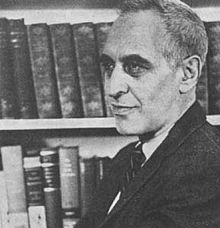The American political writer Frank S. Meyer is known as the father of “fusionism,” which is usually defined as the synthesis between traditionalist and libertarian thought in modern conservatism. In practical political terms, it brought together social conservatives, free-market advocates, and proponents of a strong national defense to fight against Communism abroad and the welfare state at home and formed the basis of Ronald Reagan’s governing coalition, as well as of think tanks like the Heritage Foundation, American Enterprise Institute and the Acton Institute.
For those of us who came of age during the Reagan presidency and call ourselves conservatives (a group which includes my fellow 40-somethings Ted Cruz and Marco Rubio), fusionism was the basis for our political opinions. With the demise of the Soviet Union in 1991 and Bill Clinton’s 1996 declaration that “the era of big government is over,” it appeared that fusionism had decisively won its decades-long argument against progressive liberalism, even if much work remained to be done to restore the social, economic and military well-being of the United States.
(Fusionism is a particularly American idea, but like all American ideas, it has universal aspirations. It has influenced most European center-right parties, though not to the same degree as the Republicans.)
Tensions that were kept under check during the Cold War soon began to emerge, however. Former Reagan speechwriter Pat Buchanan’s disavowal of free trade and immigration in his 1992 primary challenge to incumbent President George H. W. Bush was the first significant sign of a new, populist nationalism that is now in full view with the candidacy of Donald Trump and in other parts of Europe.
These tensions are derived from those between freedom and virtue, tensions which Meyer (among many others) saw as fundamental to, but ultimately reconcilable in, Christian metaphysics and Western civilization. But as our acceptance of concepts such as “being” and “nature” started to fade, so too did our ability to hold it all together intellectually and politically. In fact, thinking that such tensions could be “fused” or synthesized in any kind of final sense may have been asking for the definitive resolution of an intractable human problem.
Christians should not be surprised by the lack of a political solution. Individually and collectively, humans have always struggled between the pride of autonomy and the humility of obedience. Rather than provide us with a political model or rule us directly, God took on human flesh and died to redeem us of our sins. The primary arena for spiritual battle is the interior life. As St. Augustine asks in The City of God (Book V, chapter 17), “So far as the life of mortals is concerned, which is spent and ended in a few days, what does it matter under whose rule a man is going to die, as long as those who govern do not force him to impiety and iniquity?”
The temptation for Christians is therefore to neglect or downplay politics. Social conservatives who care predominantly about the family and religion, as well as libertarians who focus mainly on economic freedom, often do the same. Nationalists do not suffer the same weakness and are much more adept at stirring the passions of a people, especially in times of economic anxiety, mass immigration and Islamic terrorism.
Is this the ultimate fate of fusionism? John O’Sullivan argues that populists are rising due to the failure of mainstream conservative parties, many of which were once Christian-Democratic, to satisfy moral traditionalists, patriots and “social fabric” conservatives. Roger Scruton writes about the recovery of the concept of “home” in our politics. In previous letters from Rome, I have cited Pierre Manent on the need for the nation as a political form. The splintering of the conservative coalition is accelerating even though its ideas won the great debates of the late 20th century.
Or perhaps the coalition is faltering precisely because the debate was won. Orthodoxies have a way of settling in and becoming accepted without knowing the reasons why. “Christian Europe” remains alive in our historical memory and empty cathedrals but not much else. Those who try to revive the nation in Europe are seen as dangerous demagogues rather than beneficial statesmen. Sentimental humanitarianism is preferred to strident nationalism in today’s Europe and perhaps soon enough in America.
Fusionism may have worked well as an alliance meant to win elections, especially when there were too few of each type of conservative to have any discernible effect on society. But today we all speak about family values, community and progress without knowing what these mean anymore and how they may all fit together.
The problem with fusionism as an idea is its inability to distinguish between different human goods that are often in competition with each other. The liberal reply to this problem is simply to live and let live, rather than to ask people to think and choose among these goods. And by “people” I mean a political body that Augustine said can be defined and even judged by what it loves; where there is no people, there can be no republic (see City of God, Book XIX, ch. 23-24). Politics and the soul are more related that we may have thought.
